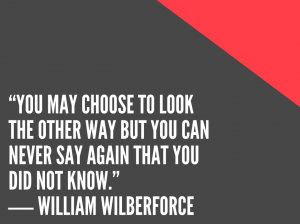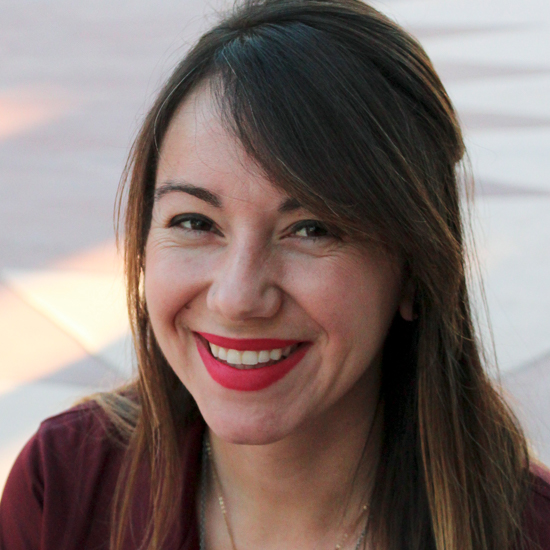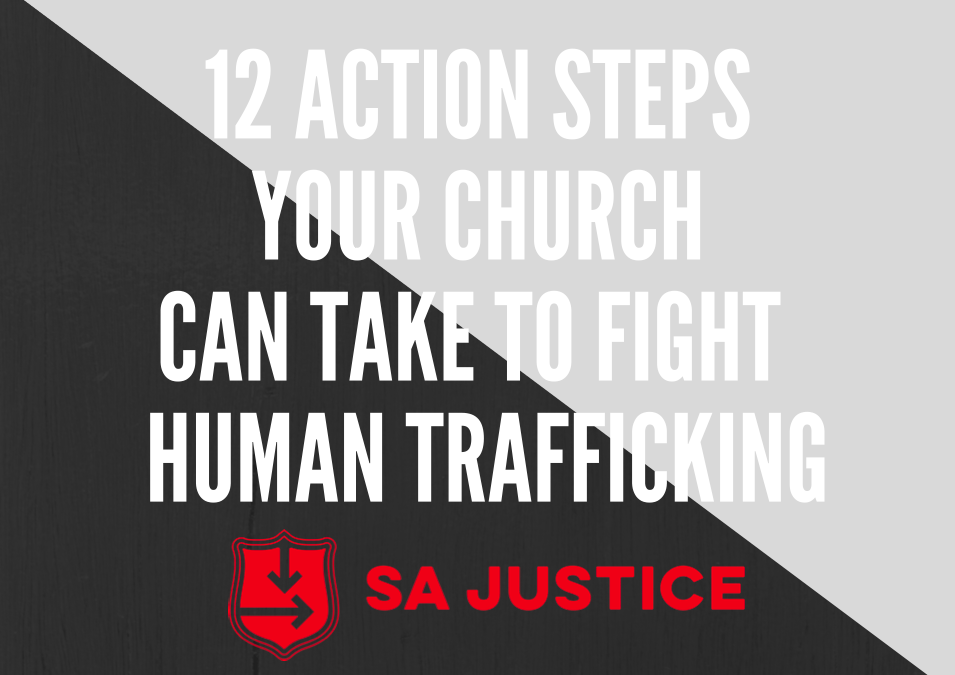Since the beginning of humanity, people have bought, sold, and enslaved by other people.
But one of the great collective triumphs of our world has been our ability to end slavery. Slaves themselves, along with people of faith were at the forefront of challenging this evil practice.
“Abolition” leaves no room for compromise.
Emancipation set the captives free, right?
Well, at least that’s what we like to think. Sure, we’ve heard there are still questionable work conditions in sweatshops on the other side of the world. But buying, selling and trafficking human beings? If that’s happening, it must be far away from us.
Actually, no. No matter where we live, modern-day slavery is amongst us.
From the girl deceived into selling herself at a hotel next to your favorite restaurant to the man discovered in that very restaurant kitchen, stripped of his passport and humanity.
According to the International Organization of Migration, human trafficking is the fastest growing crime on the planet with 20.9 millions slaves worldwide and fifty six percent of those are women and girls.
A holistic, collaborative, compassionate, grit-filled response is required.
Here’s the good news: Since its very beginning, God raised The Salvation Army as a global pioneer and leader to fight against human trafficking.
Today, just as we were in 1902 when we invaded the Japanese brothels and help to free over 1,000 of girls and women, we’re dedicated to fighting this evil by intercepting trafficking networks through strategic interventions and providing safety, justice, and holistic restoration to its survivors.
 We all have a role in this fight, including churches.
We all have a role in this fight, including churches.
Churches are our community-based solution to human trafficking – an embodiment of God’s love, a unified group to raise their voice and welcome survivors and those on the margins into its family.
Here are 12 action steps churches can take to join the fight against modern-day slavery.
#1 Begin to pray
Did you know this topic is important to God? Ask questions and listen to God’s spirit speak truth and break your heart for the people affected. Pray inside and outside the Corps. Gather a group of people and drive around town. Pray over schools, truck stops, hotels, massage parlors, and areas specific to human trafficking and people on the margins.
#2 Listen and become informed
Become inform of how it’s specifically happening in your context and seek wisdom and guidance. Attend local trainings and events. Listen to those who are marginalized. Learn all the moving parts connected to trafficking.
It’s extremely difficult to have a well-informed anti-trafficking conversation without realizing the implications that gender inequality, racial injustice and migration and immigration systems have and how its impact on human trafficking.
Listen, learn and don’t judge.
#3 Be inclusive, like for real
Most survivors have a history of being some of the most marginalized and polarized in our society. Many survivors are foster girls, single moms, undocumented workers, asylum seekers, LGBTQ members, women in the sex industry, or those experiencing poverty.
Many Corps may not realize that seeking out and welcoming the most vulnerable into their Corps family can prevent human trafficking. Providing those who feel unwanted with a place of belonging, surrounded by supportive people can prevent further vulnerabilities.
So, seek out and welcome everyone – whether they are nice or mean, gay or straight, poor or rich.
#4 Fair-trade your coffee, tea, and chocolate
By ‘fair-trading’ your coffee, tea and chocolate you are promoting social justice by assuring those who harvested your cocoa beans, roasted your coffee beans, and tea farmers are provided sustainable wages, safe, humane working conditions, and paid fairly and promptly. The fair- trade label protects farmers from exploitation, which in return can prevent human trafficking.
Plus, fair-trade everything taste so much better and comes with a clear conscious.
#5 Host a city prayer breakfast at your Church
Invite your city’s major, stakeholders, and surrounding churches and businesses for a city-wide prayer breakfast. See the connections, comradery and unity that’s born from it.
#6 Join your local human trafficking task force
The Salvation Army can’t end human trafficking alone. A collaborative approach is needed. The same way traffickers have strong networks, we, as people of Faith have to be that much better and strategic. Every Corps and organization has unique strengths. Join your local task force see how your Corps can fill a gap. If there is not one in your area, start one with others in your community.
We are stronger together.
#7 Support and/or join a local sex industry outreach
Did you know that there are more women employed by the sex industry than any other time in history? Whether women in the sex industry are there by choice, coercion, force, or circumstance, they all need support and connection. Find who is doing what in your area and be intentional about how you can support… or even join!
#8 Designate a local Justice Ambassador at your Church
Identify and mobilize a representative at your Corps to implement justice-inspired campaigns, trainings, and events highlighting how to walk alongside the most marginalized.
#9 Host a BRAVE empowerment event for girls in the foster care system
A shockingly high number of human trafficking survivors are in foster care or age-out foster youth. Why can’t the Church reach them before traffickers do? BRAVE is a foster-informed campaign inviting Churches to reach out to foster girls with messages of empowerment: We see you. You matter. We believe in you. You can do it. We are with you. You are not alone.
#10 Host an awareness event
Invite other local churches, community members, & key stakeholders to come to your Corps and learn about human trafficking. Invite local experts to speak, highlight The Army’s history, play a documentary, or ask a survivor to come and share about human trafficking (Tip: If you decide on the latter, make sure you pay the survivor for his/her time).
#11 Support local SA programs and/or other organizations serving survivors
Did you know that The Salvation Army has specialized programs all through the U.S. that provides holistic care for survivors? No Salvation Army programs around you? No problem. Volunteer with other like-minded organizations fighting human trafficking.
#12 Pay attention, follow your gut and report
Get to know what are the red flags and signs of human trafficking and report things that don’t feel and look right. Add the National Human Trafficking Hotline’s phone number to your phone contacts. Right now, go! 888-3737-888. This number is available to help survivors, answer questions, and report tips. Hotline advocates are available 24/7. All tips are confidential and you can remain anonymous. Your job isn’t to be sure it’s human trafficking, simply to report it.
We need all churches joining in – whether you’re an English, Spanish, Korean, or Portuguese church.
SA Justice is here to provide any support and tools needed for all the action steps mentioned above. We’re cheering you on. Feel free to contact me (Pr**************@***************my.org) anytime.
This mission of dismantling modern day slavery requires everyone’s boots on the ground, ready to fight.

Priscilla Santos
Territorial Anti-Trafficking Initiatives Coordinator

